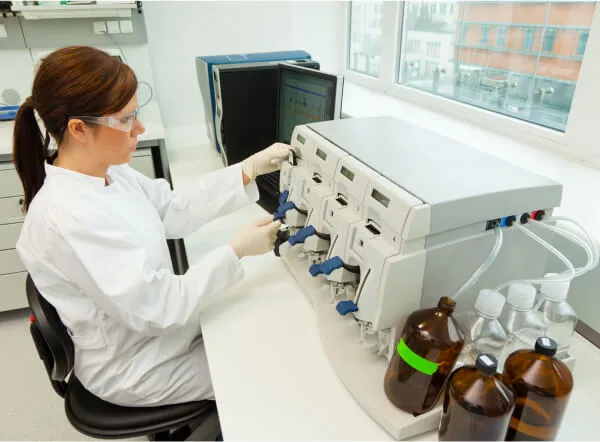Animal Genetics

Read about undergraduate and graduate degree programs in fields like animal science, which include coursework in animal genetics. Get info on career options in the field as well as job outlook and salary statistics.
<h2 id="section---IsTheStudyOfAnimalGeneticsForMe">Is the Study of Animal Genetics for Me?</h2>
<h3 id="section---CareerOverview">Career Overview</h3>
<p>Animal genetics, a sub-discipline of the animal sciences, investigates inherited characteristics and variations in all types of many-celled organisms. Animal genetics involves experimental, clinical and comparative studies. Modern animal genetics research affects many aspects of <a href="https://learn.org/directory/category/Health_Professions_and_Medical_Services/Veterinary_Sciences_and_Medicine/Veterinary_Medicine,_DVM.html">veterinary medicine</a>, including the study of fertility, <a href="https://learn.org/articles/Pharmacology_School_and_Degree_FAQs.html">pharmacology</a>, breeding, diseases and behavior.
</p>
<h3 id="section---JobOpportunities">Job Opportunities</h3>
<p>Employment is available with animal pharmaceutical companies, the federal government, breeding companies and universities. You may find an entry-level position in a lab working in animal genetics after completing an associate's degree or certificate program in either <a href="https://learn.org/articles/Veterinary_Technology_Associate_Degree_Your_Questions_Answered.html">veterinary</a> or medical technology. If you earn a bachelor's degree in animal sciences, you may secure a job working on a farm or in a lab with a pharmaceutical firm or an agribusiness. A bachelor's degree is a good background for future studies in veterinary medicine, education, conservation, medicine, biotechnology, agribusiness or animal production.
</p>
<p>With a master's degree in <a href="https://learn.org/articles/Top_Animal_Science_Graduate_Programs_and_Schools.html">animal sciences</a> specializing in animal genetics, you may find work as an animal support scientist at a university, high school teacher in animal sciences, animal nutritionist, researcher or a farm advisor. A Ph.D. in Animal Sciences concentrating in <a href="https://learn.org/articles/Animal_Breeding_Schools_and_Courses_Frequently_Asked_Questions.html">animal genetics</a> can open doors to careers as an animal scientist, biology professor or research geneticist.
</p>
<h3 id="section---SalariesAndEmploymentOutlook">Salaries and Employment Outlook</h3>
<p>According to the U.S. Bureau of Labor Statistics (BLS), animal scientists made an average yearly wage of $72,930, and postsecondary agricultural sciences teachers averaged $86,710 per year as of May 2013 (<i>www.bls.gov</i>). The BLS expected job opportunities for animal scientists to increase 9%, while postsecondary teachers would see 19% job growth from 2012-2022.
</p>
<h2 id="section---HowCanIWorkInAnimalGenetics">How Can I Work in Animal Genetics?</h2>
<h3 id="section---UndergraduateEducation">Undergraduate Education</h3>
<p>An associate's degree program in animal sciences would include courses in <a href="https://learn.org/articles/Biology_Major_Online_and_Campus-Based_Program_FAQs.html">biology</a>, <a href="https://learn.org/articles/Chemistry_Bachelors_Degrees_Online_Program_FAQs.html">chemistry</a>, <a href="https://learn.org/articles/Mathematics_Become_a_Mathematician_in_5_Steps.html">mathematics</a>, economics and animal sciences. You learn how to research issues in health, nutrition, breeding, <a href="https://learn.org/articles/Management_Doctoral_Degree_Programs.html">management</a> and <a href="https://learn.org/articles/Marketing_Bachelors_Degree_Programs.html">marketing</a>. You could also major in animal sciences as part of a bachelor's degree program. This would allow you to apply training in the life sciences to the field of animal genetics and breeding. You can expect a core curriculum in <a href="https://learn.org/articles/Animal_Biology_Degree_and_Career_FAQs.html">animal biology</a>, nutrition, genetics, reproduction and development.
</p>
<h3 id="section---GraduateStudies">Graduate Studies</h3>
<p>Another option is to pursue a Master of Science (M.S.) degree with a focus on animal genetics. You can expect courses in population genetics, statistics, <a href="https://learn.org/articles/Biochemistry_Degrees_Online_Program_FAQs.html">biochemistry</a>, quantitative genetics and immunogenetics. If you plan to pursue your Doctor of Philosophy (Ph.D.) degree, you can anticipate various courses in genetics, in addition to seminars on issues in animal sciences. You will be required to complete original research and write a dissertation on the results, successfully pass multiple written and oral examinations and work as a <a href="https://learn.org/articles/What_are_the_Job_Duties_of_a_Teaching_Assistant.html">teaching assistant</a>.</p>



.svg)